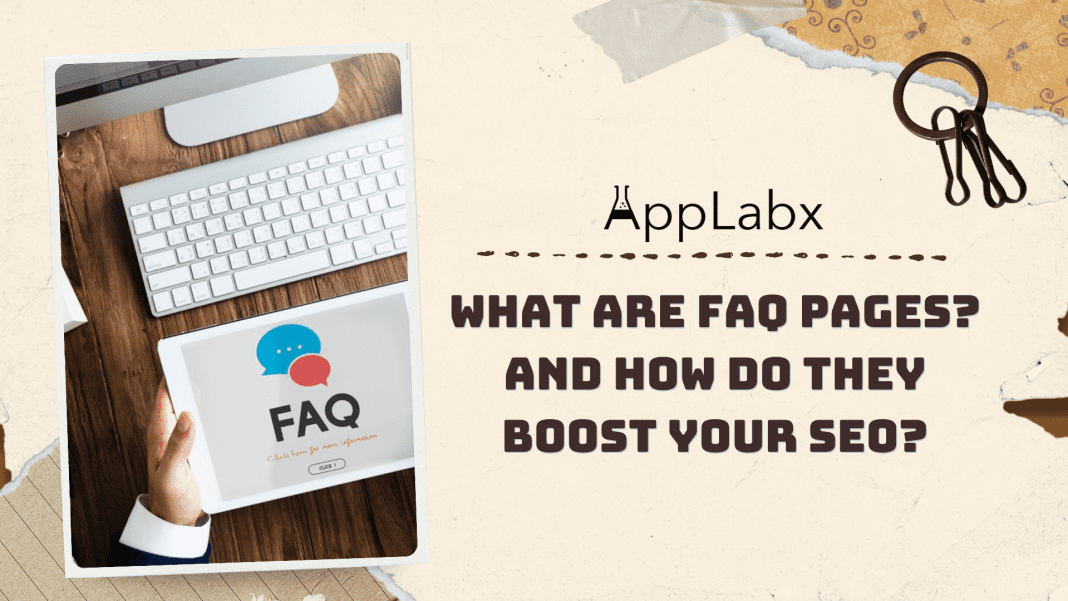Key Takeaways
- FAQ Pages Catalyze SEO Success: Harness the potential of FAQ pages as dynamic tools that strategically boost website visibility and improve search rankings.
- Strategic Optimization Unleashed: Dive into the art of FAQ content creation, from keyword integration to user-centric design, to align with search engine algorithms and user intent.
- User Engagement as SEO Currency: Beyond information provision, leverage FAQ pages to engage users, foster trust, and create a seamless experience, crucial elements in the ever-evolving landscape of SEO.
In the vast landscape of digital marketing, where algorithms evolve and user behaviour constantly shifts, staying ahead in the online visibility game is paramount.
Amidst the arsenal of strategies, FAQ pages emerge as unsung heroes, wielding the power to not only address user queries but significantly elevate your website’s Search Engine Optimization (SEO) prowess.
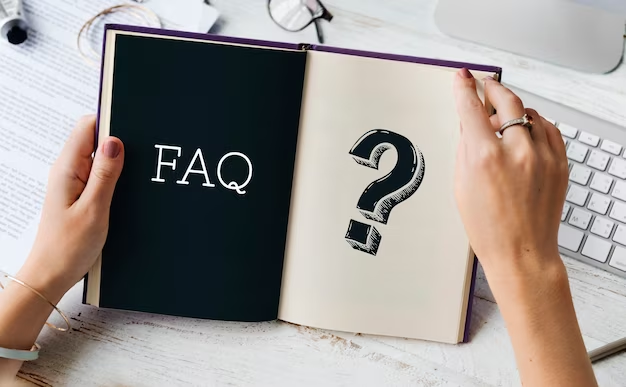
Unlocking the Potential: FAQ Pages and SEO Synergy
Imagine a virtual assistant dedicated to deciphering the intricacies of your business, tirelessly providing answers to user inquiries 24/7.
That’s essentially the role of a well-crafted Frequently Asked Questions (FAQ) page.
This comprehensive guide delves into the realm of FAQ pages, unravelling their significance and unveiling the transformative impact they wield on SEO strategies.
Defining FAQ Pages in the Digital Epoch
Before delving into the intricate dance between FAQ pages and SEO, let’s demystify the essence of FAQ pages.
Traditionally confined to product manuals and customer service centres, FAQ pages have metamorphosed into dynamic online entities.
These pages encapsulate a curated collection of frequently asked questions, accompanied by succinct yet informative answers, designed to streamline user interactions and enhance overall user experience.
Navigating the Evolution of FAQ Pages
The evolution of FAQ pages is a testament to the dynamic nature of digital content.
Once relegated to static, text-heavy formats, modern FAQ pages have undergone a metamorphosis, seamlessly integrating multimedia elements, interactive features, and user-friendly interfaces.
As users demand instant gratification and information accessibility, FAQ pages have emerged as a strategic tool, not only addressing queries but also playing a pivotal role in shaping the online identity of businesses across diverse industries.
Crucial Elements of an Effective FAQ Page
What separates an ordinary FAQ page from a powerful SEO tool lies in its construction.
An effective FAQ page is not merely a compilation of questions and answers; it is a strategic entity meticulously designed to resonate with both users and search engines.
From the clarity of language and relevance of content to the strategic placement of keywords, each element plays a crucial role in shaping the impact of FAQ pages on SEO outcomes.
Embark on a journey through the intricacies of FAQ pages as we unravel the symbiotic relationship between these user-friendly information hubs and the intricate algorithms that dictate online visibility.
Brace yourself for a deep dive into keyword optimization strategies, user-centric content structuring, and the art of leveraging FAQ pages to not only answer questions but to propel your website to the forefront of search engine results.
Welcome to the ultimate guide on “What are FAQ Pages? And How Do They Boost Your SEO?”—a roadmap to unlocking the untapped potential of your digital presence.
But, before we venture further, we like to share who we are and what we do.
About AppLabx
From developing a solid marketing plan to creating compelling content, optimizing for search engines, leveraging social media, and utilizing paid advertising, AppLabx offers a comprehensive suite of digital marketing services designed to drive growth and profitability for your business.
AppLabx is well known for helping companies and startups use digital marketing to drive web traffic to their websites and web apps.
At AppLabx, we understand that no two businesses are alike. That’s why we take a personalized approach to every project, working closely with our clients to understand their unique needs and goals, and developing customized strategies to help them achieve success.
If you need a digital consultation, then send in an inquiry here.
What are FAQ Pages? And How Do They Boost Your SEO?
- Understanding FAQ Pages
- The SEO Connection
- Boosting SEO with FAQ Pages
- Structuring FAQ Pages for SEO Success
- Tools and Resources
- Best Practices for FAQ Pages
1. Understanding FAQ Pages

Definition and Purpose of FAQ Pages
Defining the FAQ Page: FAQ pages, or Frequently Asked Questions pages, are dedicated sections on a website that house a curated list of common queries users might have. These pages serve as centralized repositories of information, aiming to address user concerns promptly.

Purposeful Engagement: The primary purpose of FAQ pages extends beyond mere information dissemination. These pages function as strategic tools for enhancing user experience, reducing bounce rates, and fostering a sense of reliability and transparency.
By preemptively answering common questions, FAQ pages contribute significantly to customer satisfaction and trust-building.
Example: Amazon’s FAQ section seamlessly guides users through common inquiries, from order tracking to returns, showcasing the multifaceted utility of FAQ pages.

Evolution of FAQ Pages in Online Content
Historical Context: Historically confined to physical manuals and customer service desks, FAQ pages found their digital footing in the early stages of the internet.
As user interaction shifted online, the need for accessible, self-service information became apparent, propelling the evolution of FAQ pages.
Multimedia Integration: Modern FAQ pages have transcended the limitations of text-based formats.
Integration of multimedia elements, such as videos and infographics, has become a prevalent trend.
According to a study, incorporating videos on landing pages can result in a staggering 80% boost in conversion rates.
Example: Slack’s FAQ page integrates video tutorials, enhancing user comprehension and engagement.

Interactive Features: The evolution of FAQ pages is marked by an increased focus on interactivity.
Incorporating collapsible sections, search functionalities, and user-friendly interfaces has become standard practice, aligning with the dynamic expectations of today’s online audience.
According to a report, interactive content delivers 94% higher content views when compared to static pieces.
Common Elements Found in Effective FAQ Pages
Clarity of Language: The effectiveness of a FAQ page lies in its ability to communicate complex information in simple terms. Clear, jargon-free language fosters user understanding and accessibility.
Relevance of Content: The selection of questions and the relevance of provided answers are paramount. FAQ pages should align with user intent, addressing queries that are not only frequent but also pivotal in the user’s journey.
Navigation and Organization: Seamless navigation is key. Intuitive organization, through categorization or tagging, ensures users can swiftly locate information. Google’s search algorithms favour user-friendly structures, contributing to enhanced SEO.
Mobile Responsiveness: With the surge in mobile users, FAQ pages must be optimized for various devices. Google’s mobile-first indexing prioritizes mobile-friendly content, impacting search rankings.
2. The SEO Connection
In the digital realm, where the battle for online supremacy is fierce, understanding the intricate connection between FAQ pages and Search Engine Optimization (SEO) is a pivotal step toward achieving heightened visibility and user engagement.
Let’s explore how FAQ pages can be strategically wielded to enhance your website’s SEO standing.

Overview of SEO (Search Engine Optimization)
Defining SEO: SEO is the cornerstone of online visibility, encompassing a range of strategies and techniques to optimize a website to rank higher in search engine results. The ultimate goal is to attract organic traffic by aligning with search engine algorithms and user intent.
SEO’s Role in Online Success: With 75% of Internet users never scrolling past the first page of search results, securing a prominent position in search rankings is paramount for online success.
SEO techniques, including keyword optimization and content structuring, play a crucial role in achieving and maintaining this coveted visibility.
Importance of SEO in Online Visibility
The Search Engine Landscape: Search engines, led by Google, have become the gatekeepers of online information.
Visibility and Credibility: High search engine rankings not only enhance visibility but also confer credibility.
How FAQ Pages Contribute to SEO Efforts
Keyword Optimization: FAQ pages serve as fertile ground for strategic keyword placement.
By aligning the content with relevant keywords and long-tail phrases, these pages become entry points for users seeking specific information.
A well-optimized FAQ page can significantly enhance a website’s chances of ranking for targeted search queries.
Increased Visibility in Search Results: Google’s algorithms reward websites that provide valuable and relevant content.
FAQ pages, when rich in informative content, act as beacons for search engines, signalling the depth of information available on a website. This can lead to improved rankings and increased visibility in search results.
Example: HubSpot’s FAQ section strategically incorporates a variety of long-tail keywords, contributing to its overall SEO success. This is evident in their high organic search traffic and visibility.

Addressing User Intent and Queries
Aligning with User Intent: Google’s emphasis on user intent means that websites must align their content with what users are seeking.
FAQ pages, designed to address common questions and concerns, directly cater to user intent, signalling to search engines that the website provides valuable and relevant solutions.
Long-Tail Keywords and Voice Search: As voice search becomes increasingly prevalent, the conversational nature of FAQ pages aligns seamlessly with the way users phrase voice queries.
Integrating natural language and long-tail keywords enhances the chances of appearing in voice search results, a critical consideration in the evolving landscape of search.
3. Boosting SEO with FAQ Pages
In the ever-evolving landscape of Search Engine Optimization (SEO), FAQ pages emerge as dynamic tools capable of propelling your website to new heights in search rankings.
This section unravels the intricacies of leveraging FAQ pages to boost SEO, providing actionable insights and examples for effective implementation.

Keyword Optimization for FAQ Content
Strategic Keyword Placement: FAQ pages offer a unique opportunity to strategically infuse content with relevant keywords.
By aligning with user queries and search intent, these pages become valuable assets in capturing organic search traffic. Utilize tools like Google Keyword Planner to identify high-performing keywords in your niche.
Long-Tail Keywords: Long-tail keywords, often found in user queries, are particularly effective in FAQ content.
They cater to specific user needs, and studies indicate that long-tail keywords account for 70% of all web searches. Integrating these phrases authentically into FAQ answers enhances the likelihood of ranking for niche queries.
Example: The FAQ section on Moz’s website strategically incorporates long-tail keywords related to SEO practices, contributing to their authoritative presence in search results for specific queries.
Increased Visibility in Search Engine Results
Enhanced Click-Through Rates (CTR): FAQ pages, when optimized for search, can lead to higher click-through rates.
Appearing in featured snippets or position zero results not only increases visibility but also enhances the likelihood of users clicking through to the website.
According to a study, for high-traffic keywords, ranking in the featured snippet saw an average increase in CTR of over 114%.
Ranking for Multiple Keywords: A well-structured FAQ page can rank for a multitude of keywords, expanding the reach of your content.
Search engines recognize the comprehensive nature of FAQ pages, and Google’s algorithms reward websites that provide versatile and detailed information.
According to a study, the average top-ranking page also ranks in the top 10 search results for nearly 1,000 other relevant keywords.
Addressing User Intent and Queries
User-Centric Content Creation: FAQ pages inherently focus on addressing user questions, aligning seamlessly with the user-centric approach favoured by search engines.
Understanding and catering to user intent not only improves the user experience but signals to search engines that your content is valuable and relevant.

Voice Search Optimization: With the rise of voice search, FAQ pages play a crucial role in optimizing content for natural language queries.
Phrasing answers conversationally and anticipating how users might voice their queries enhances the chances of appearing in voice search results.
Example: IKEA’s FAQ page is designed to address user queries in a conversational tone, optimizing for both traditional text search and voice search queries.

4. Structuring FAQ Pages for SEO Success
In the intricate dance between Frequently Asked Questions (FAQ) pages and Search Engine Optimization (SEO), the structure of your FAQ content becomes a critical determinant of success.
This section unravels the art of crafting SEO-optimized FAQ pages, delving into best practices, examples, and data-backed insights for maximum impact.
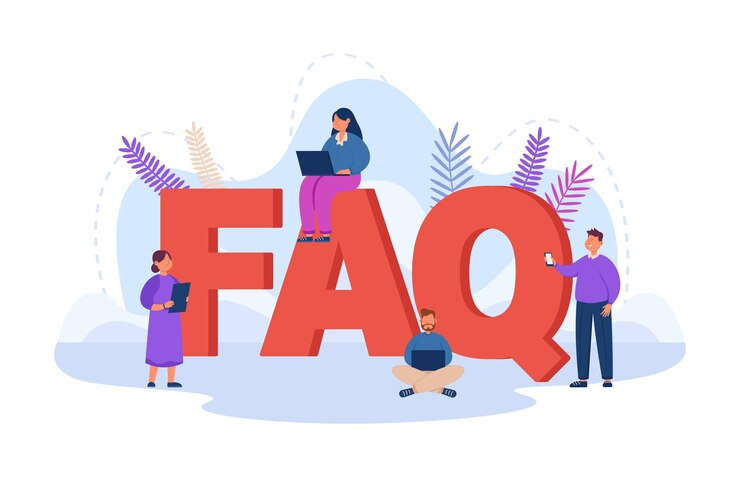
Clear and Concise Answers
SEO-Friendly Content Clarity: Search engines prioritize content that directly addresses user queries.
Craft answers on your FAQ page that are clear, concise, and directly respond to the questions posed.
This not only enhances SEO by matching search intent but also improves the overall user experience.
Example: Airbnb’s FAQ section excels in providing succinct, to-the-point answers, ensuring both search engines and users find value in the content.

Organizing Content for User Experience and Crawlers
Intuitive Categorization: Organizing your FAQ content into logical categories or sections improves user navigation and signals to search engine crawlers that your content is well-structured.
This is a crucial aspect of on-page SEO.
Example: Dropbox’s FAQ page employs a well-organized structure, grouping questions under relevant categories, facilitating an intuitive user experience, and aiding SEO.

Hierarchy and Formatting: Establish a clear hierarchy within your FAQ page, utilizing headers (H1, H2, H3) and bullet points for easy readability. Search engines favour well-formatted content, and users appreciate the visual appeal and accessibility.
Utilizing Long-Tail Keywords
Strategic Long-Tail Integration: Identify and incorporate long-tail keywords naturally within your FAQ answers. Long-tail keywords often mirror user queries more closely, making your content relevant to specific search intents.
Mobile Responsiveness
Mobile-First Indexing Impact: With a significant portion of internet users accessing content via mobile devices, ensuring your FAQ page is mobile-responsive is crucial. Google’s mobile-first indexing prioritizes mobile-friendly pages, impacting search rankings.
Example: Google’s own FAQ page is a prime example of mobile responsiveness, providing a seamless experience across various devices and aligning with mobile-first indexing preferences.
Regularly Updating Content
Dynamic and Fresh Content: Search engines favour regularly updated content, signalling that your website is active and providing up-to-date information. Periodically revisit and refresh your FAQ page to reflect changes in your products, services, or industry.
Example: The FAQ section on WordPress is continuously updated to reflect the latest features, ensuring users access accurate information and contributing to SEO longevity.
Balancing SEO Optimization with User-Friendliness
User-Centric Approach: While SEO considerations are crucial, never compromise the user experience for the sake of optimization. User-friendly FAQ pages enhance dwell time, reduce bounce rates, and contribute positively to SEO.
Example: The FAQ section on Etsy combines SEO-friendly content with a visually appealing layout, striking a balance between optimization and user experience.

Integrating User-Generated FAQs for Community Engagement
Community-Driven FAQs: Invite user-generated questions and feedback to foster community engagement.
Incorporating real user queries not only provides diverse content but also signals to search engines that your FAQ page is dynamic and reflective of user needs.
Example: Reddit’s FAQ section, driven by user-generated content, showcases the power of community engagement in creating a robust and comprehensive knowledge base.
5. Tools and Resources
In the realm of Search Engine Optimization (SEO), leveraging the right tools and resources is instrumental in crafting FAQ pages that not only address user queries but also strategically boost your website’s visibility.
This section navigates through essential tools, platforms, and resources, providing insights and examples to empower your FAQ optimization journey.
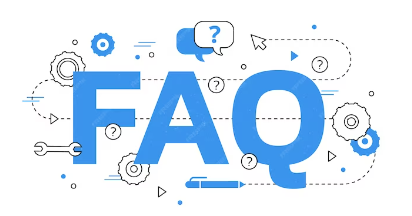
SEO Tools for Keyword Research and Tracking
Google Keyword Planner
Purpose: An invaluable tool for keyword research, Google Keyword Planner helps identify relevant keywords, assess search volumes, and understand competition.
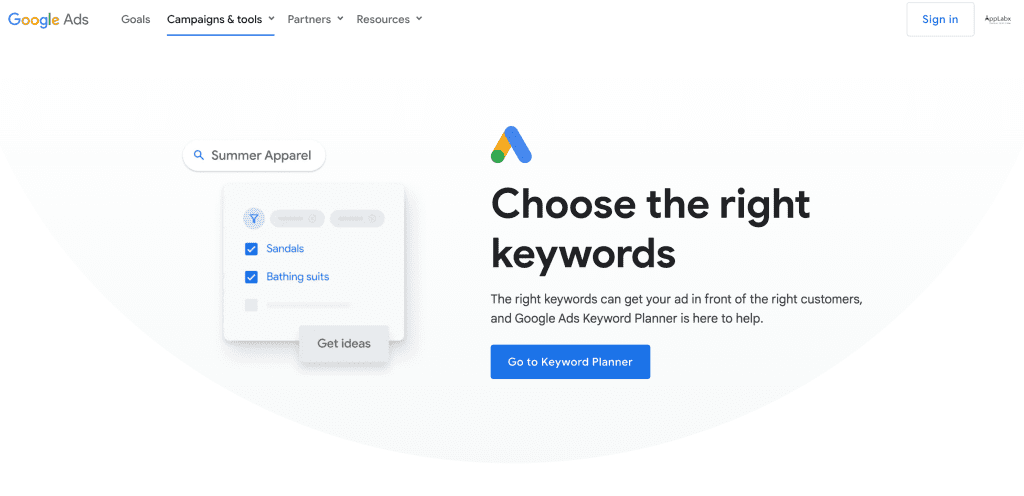
Semrush
Purpose: Semrush offers comprehensive keyword analysis, competitor research, and tracking functionalities, aiding in optimizing FAQ content for targeted keywords.
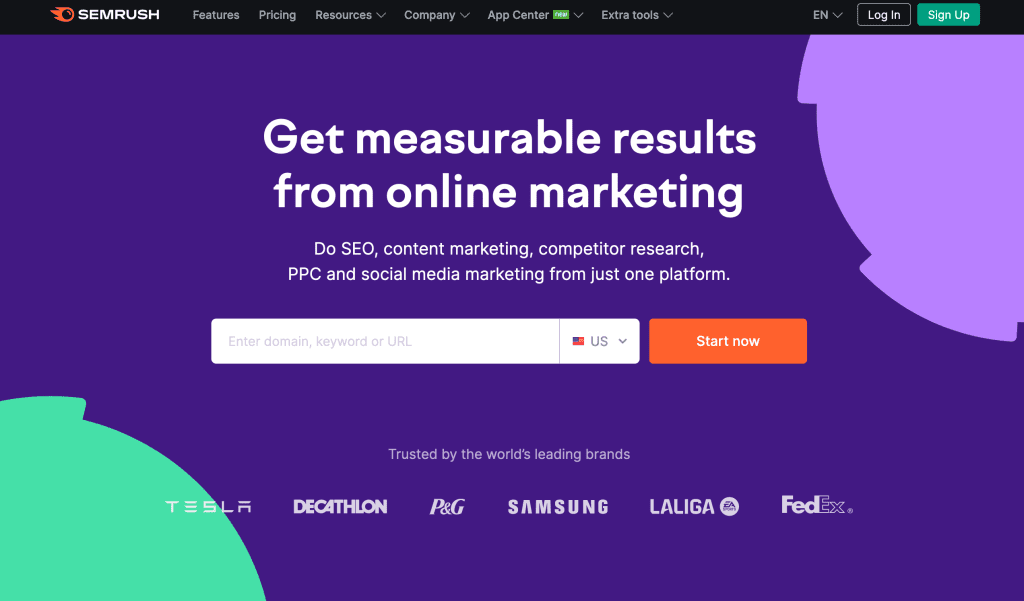
Plugins and Platforms for Creating and Managing FAQ Pages
Yoast SEO (WordPress Plugin)
- Purpose: A popular WordPress plugin, Yoast SEO facilitates on-page optimization, including FAQ page structuring, meta tags, and readability checks.
- Example: The FAQ section on the Moz blog, powered by Yoast SEO, demonstrates the effective use of the plugin’s features for SEO optimization.
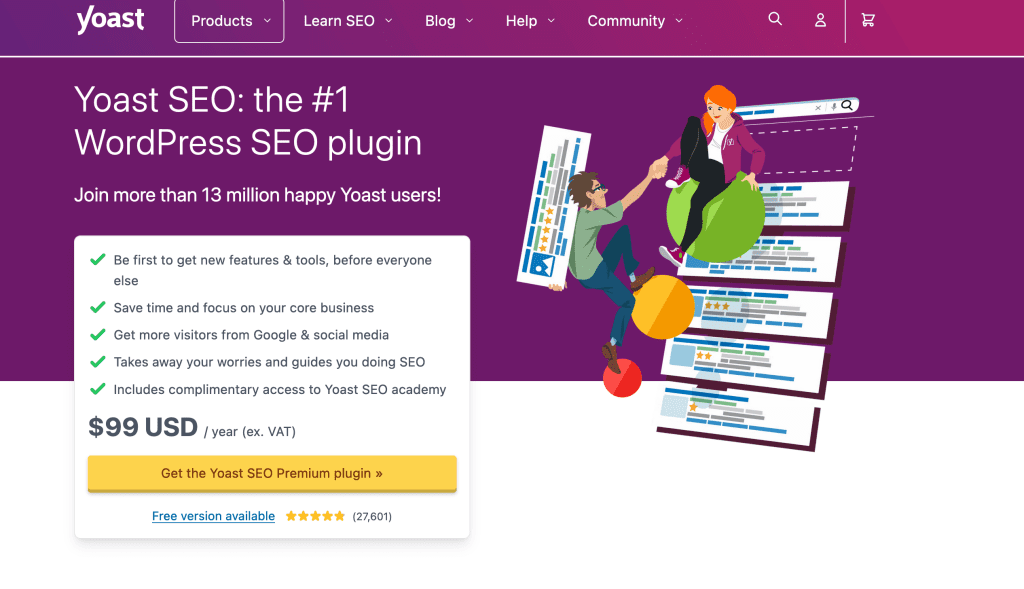
FAQPage Schema Markup
- Purpose: Utilizing FAQPage schema markup helps search engines understand the structure of your FAQ content, potentially leading to enhanced visibility in rich results.
- Websites with schema markup rank an average of four positions higher in search engine results pages than those without it.
HubSpot CMS
- Purpose: HubSpot’s CMS offers a user-friendly platform for creating and managing FAQ pages, providing tools for content optimization and tracking.
- Example: HubSpot’s own FAQ section showcases the platform’s capabilities in creating organized, SEO-friendly content.
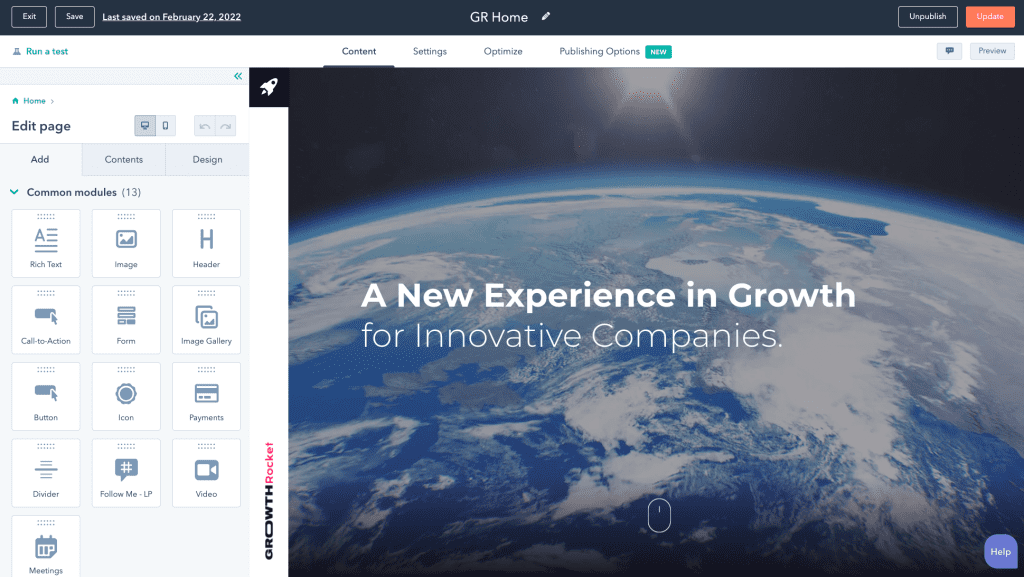
Additional Reading and References for Further Learning
Google’s SEO Starter Guide
Purpose: Google’s SEO Starter Guide is a comprehensive resource offering best practices and insights directly from the search engine giant.
Moz’s Beginner’s Guide to SEO
Purpose: Moz’s Beginner’s Guide to SEO is a go-to resource for understanding the fundamentals of SEO, including keyword research and content optimization.
6. Best Practices for FAQ Pages
Navigating the complexities of Search Engine Optimization (SEO) requires a meticulous approach to FAQ page creation.
This section unravels the best practices that can elevate your FAQ pages, ensuring they not only address user queries but also strategically contribute to your website’s visibility in search engine results.

Regularly Updating Content
Strategic Refreshes
Strategy: Periodically revisit and refresh your FAQ content to reflect changes in products, services, or industry trends.
Example
- Before Update: An e-commerce website may include outdated shipping information.
- After Update: The same website revises its FAQ to include the latest shipping policies, enhancing user satisfaction and maintaining SEO relevance.
Monitoring User Behavior and Adapting
Data-Driven Analysis
Strategy: Utilize analytics tools to assess user engagement metrics on your FAQ pages.
Example
High Bounce Rates: If analytics indicate high bounce rates on specific FAQ pages, consider revising content or improving navigational elements to enhance user experience.
Utilizing Clear and Concise Language
SEO-Friendly Clarity
- Strategy: Craft answers on your FAQ page that are clear, concise, and directly respond to user queries.
- Impact: Google’s algorithms prioritize content clarity, contributing to improved search rankings.
Example
Complex Jargon: A tech FAQ may simplify complex terms to cater to a wider audience, enhancing both user understanding and SEO.
Implementing Intuitive Navigation and Organization
Logical Hierarchy
- Strategy: Establish a clear hierarchy within your FAQ page, utilizing headers and bullet points for easy readability.
- Well-formatted and readable content tends to attract higher user engagement.
Example
Categorization: Group related questions under specific categories to facilitate intuitive navigation, such as “Account Management” or “Product Usage.”
Balancing SEO Optimization with User-Friendliness
User-Centric Approach
- Strategy: Prioritize a user-friendly design while implementing SEO principles.
- Example: Etsy’s FAQ section combines SEO-friendly content with a visually appealing layout, striking a balance between optimization and user experience.
Integrating User-Generated FAQs for Community Engagement
Community-Driven FAQs
- Strategy: Encourage users to contribute questions and feedback to foster community engagement.
- Example: Reddit’s FAQ section, driven by user-generated content, showcases the power of community engagement in creating a robust knowledge base.
Optimizing for Mobile Responsiveness
Mobile-First Indexing Impact
- Strategy: Ensure your FAQ page is optimized for various devices, especially mobile.
- As of the second quarter of 2023, around 95.8 per cent of global users accessed the internet via mobile phones.
Example
Responsive Design: Google’s own FAQ page provides a seamless experience across devices, aligning with mobile-first indexing preferences.
Conclusion
In the labyrinth of digital landscapes, FAQ pages emerge not merely as static repositories of information but as dynamic catalysts that can reshape the trajectory of your website’s visibility.
As we traverse the intricacies of FAQ pages and their symbiotic relationship with Search Engine Optimization (SEO), a compelling narrative unfolds—a narrative woven with the threads of user-centricity, strategic content creation, and the relentless pursuit of SEO excellence.
Embracing the Power of FAQ Pages
In essence, FAQ pages represent the digital handshake between businesses and their audience.
They transcend the role of mere information providers, morphing into interactive hubs that engage users, address concerns, and nurture a sense of trust. The evolution of FAQ pages mirrors the evolution of user expectations—dynamic, responsive, and intuitive.
The SEO Alchemy of FAQ Pages
Underlying the user-centric facade of FAQ pages lies an alchemy that resonates with search engines. The strategic infusion of keywords, the meticulous structuring of content, and the intuitive organization collectively cast a spell that captivates algorithms.
As the digital arena becomes increasingly competitive, FAQ pages emerge as potent weapons in the arsenal of SEO warriors, propelling websites to the coveted zenith of search rankings.
Strategic Optimization Unveiled
Through this exploration, we’ve unearthed a trove of best practices that can serve as guiding stars in the vast SEO cosmos.
From the regular refreshment of content to the delicate dance between clarity and conciseness, each facet contributes to a symphony that resonates not only with users but with the discerning ears of search algorithms.
Tools, Resources, and Real-World Wisdom
Arming ourselves with the right tools and resources becomes pivotal in this quest for SEO excellence.
From keyword planners to user forums, the digital toolbox is extensive, offering instruments that, when wielded with finesse, can sculpt FAQ pages into SEO masterpieces.
The Ever-Evolving Landscape
Yet, as we conclude this exploration, it’s crucial to acknowledge the dynamic nature of the digital landscape. SEO is not a stagnant pond but a flowing river, and FAQ pages must evolve alongside it.
Monitoring user behaviour, adapting to trends, and staying abreast of algorithmic shifts become the rudders steering your SEO ship through the currents of change.
A Call to Action: Transforming Insights into Results
In the realm of FAQ pages and SEO, knowledge transforms into power when applied. The insights gathered on this journey are not mere observations—they are tools waiting to be wielded, strategies begging to be executed.
As you embark on the path to optimizing your FAQ pages, let these insights guide your steps, each one a compass pointing toward the destination of SEO success.
In the grand tapestry of digital strategy, FAQ pages are not just static elements; they are dynamic players in the unfolding saga of user engagement and search engine prominence.
As the curtain falls on this exploration, the stage is set for your website to take centre stage in the online arena, captivating both users and search algorithms alike.
When harnessed to their full potential, FAQ pages transcend the realm of mere information—they become conduits of connection, trust, and SEO triumph.
If you are looking for a top-class digital marketer, then book a free consultation slot here.
If you find this article useful, why not share it with your friends and business partners, and also leave a nice comment below?
We, at the AppLabx Research Team, strive to bring the latest and most meaningful data, guides, and statistics to your doorstep.
To get access to top-quality guides, click over to the AppLabx Blog.
People also ask
How do FAQs help SEO?
FAQs help SEO by providing targeted content that aligns with user queries. Strategically integrating keywords in FAQ answers enhances visibility, and clear, concise information fosters user engagement. This user-centric approach signals search engines, contributing to improved rankings and organic traffic.
What is the purpose of an FAQ page?
The purpose of an FAQ page is to offer a centralized resource that addresses common user queries. It enhances user experience, reduces bounce rates, and builds trust by providing clear, accessible information. FAQ pages also serve as strategic tools to boost website credibility and satisfaction.
How does SEO boost your website?
SEO boosts your website by improving its visibility in search engine results. Strategic optimization, including keyword usage, quality content, and user-friendly design, attracts organic traffic. Higher rankings enhance credibility, user trust, and overall online presence, driving success.


























